Empower yourself with knowledge on dealing with harassing agents online and via phone collections by following the steps outlined in this blog post.
Read MoreYou can edit all of this text and replace it with anything you have to say on your blog.
Empower yourself with knowledge on dealing with harassing agents online and via phone collections by following the steps outlined in this blog post.
Read MoreThis is a generic blog article you can use for adding blog content / subjects on your website. You can edit all of this text and replace it with anything you have to say on your blog.
Read MoreThis is a generic blog article you can use for adding blog content / subjects on your website. You can edit all of this text and replace it with anything you have to say on your blog.
Read MoreThis is a generic article you can use for adding article content / subjects on your website.
Read MoreYou can edit all of this text and replace it with anything you have to say on your blog.
The livestreaming and video production app for IOS devices without the hassle of bulky equipment and expensive switcher machine which you can carry anytime and anywhere.
Learn MoreEmpower yourself with knowledge on dealing with harassing agents online and via phone collections by following the steps outlined in this blog post.
The Supreme Court of the Philippines, in its Second Division, issued a ruling emphasizing the prohibition against legal officers of local government units (LGUs) from representing public officials of the same LGUs in cases before the Ombudsman. The case is docketed and entitled as A.C. No. 13219, In re: G.R. Nos. 226935, 228238, and 228325 v. Atty. Richard R. Enojo, March 27, 2023.
This decision, penned by Associate Justice Antonio T. Kho, Jr., stemmed from a case where a provincial legal officer faced reprimand for engaging in unauthorized practice of law.
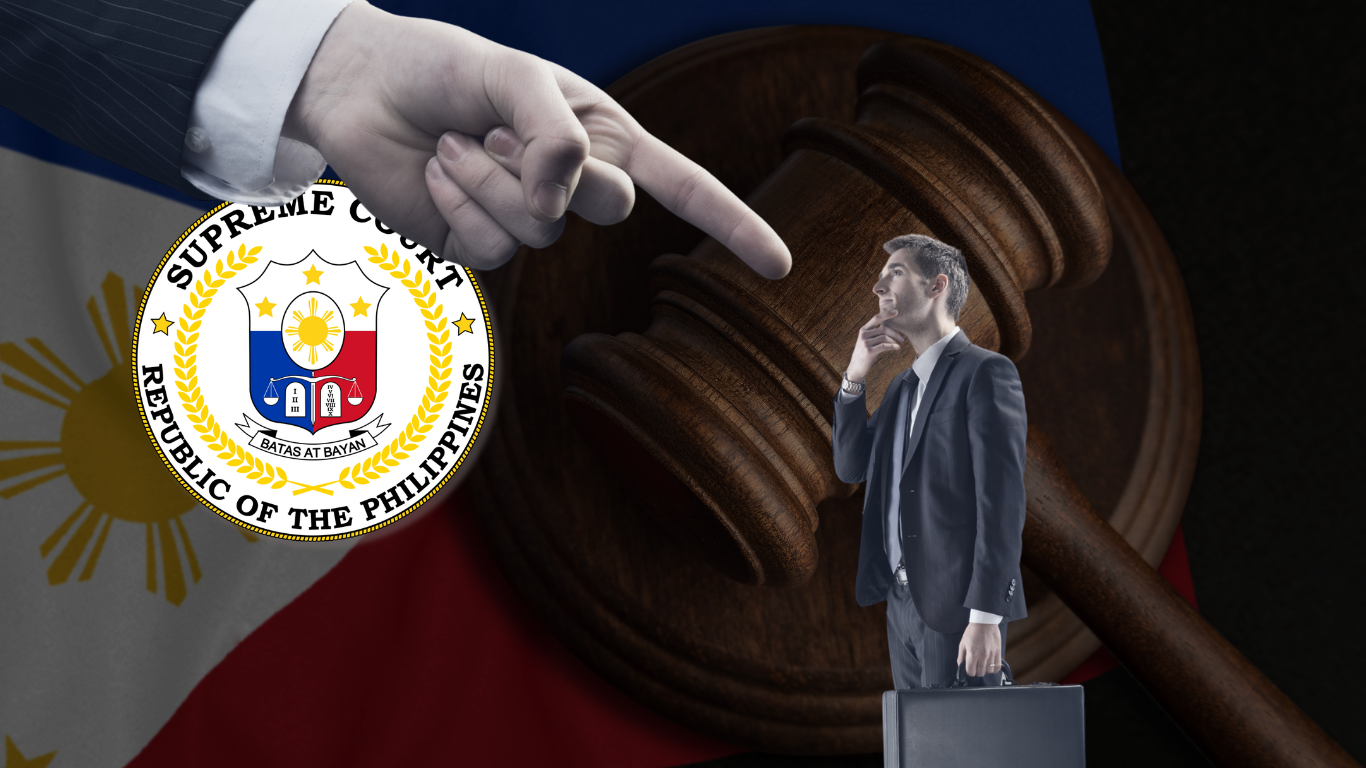
The Court's decision was grounded in Republic Act No. 6713, specifically Section 7(b)(2), which prohibits public officials and employees from participating in the private practice of their profession unless permitted by law, provided it does not conflict with their official functions.
The case involved the provincial legal officer representing Gov. Degamo in both criminal and administrative cases before the Ombudsman. Despite arguments that such representation fell within the scope of official duties, the Court deemed it unauthorized practice of law.
The ruling highlighted the paramount importance of avoiding conflicts of interest in such representations.
The lawyer's assertion lacked evidence of authority to practice law outside of his duties as a provincial legal officer. The Court underscored its previous ruling in the 2016 case of Fajardo v. Atty. Alvarez, which established the inherent conflict of interest when a government lawyer represents another public official before the Ombudsman.
In summary, the Supreme Court's decision serves as a reminder of the ethical standards governing the conduct of public officials and emphasizes the need to avoid conflicts of interest, particularly in legal representations involving government officials before the Ombudsman.
To see the FULL TEXT of the Decision (A.C. No. 13219, In re: G.R. Nos. 226935, 228238, and 228325 v. Atty. Richard R. Enojo (March 27, 2023), at: https://sc.judiciary.gov.ph/13219-in-re-g-r-nos-226935-228238-and-228325-vs-atty-richard-r-enojo/
Example Text
The responsibility of the Local Government Unit (LGU) includes provision of basic services such as maintenance of roads, bridges, drainage, sewerage, flood control, traffic signals, road signs and other similar facilities. (Section 17, Local Government Code)
By maintenance means, that the LGU shall see to it that the roads, streets, or other infrastructures are in proper conditions with the end view of securing not only the convenience of the public but principally, their safety.
Whether the construction is being undertaken by a private contractor or other government agencies or instrumentalities, the LGU still has the duty to see to it that engineering works must be done in accordance safety regulations. Again, the end view of the LGU in performing its role is to promote the general welfare.
If the LGU neglects its duty, either wittingly or unwittingly, its officials are liable to damage or injury resulting thereto. Sec. 24 of the Local Government Code of 1991 specifically states that LGU and their officials are not exempt, this wise:
SECTION 24. Liability for Damages. - Local government units and their officials are not exempt from liability for death or injury to persons or damage to property.
In addition to the possible liability for damages, the Civil Code of the Philippines also provides that:
Article 2189. Provinces, cities and municipalities shall be liable for damages for the death of, or injuries suffered by, any person by reason of the defective condition of roads, streets, bridges, public buildings, and other public works under their control or supervision. (n)
In the case of City of Manila vs. Teotico, G.R. No. L-23052, January 29, 1968, the Supreme Court held that the City of Manila was held liable for negligence in their duty of providing regular maintenance of roads and other public works.
In the case mentioned, it involves a commuter who was about to board a jeepney, after stepping down from the curb and taking a few steps, accidentally fell inside an uncovered and unlighted catch basin or manhole. Consequently and because of the fall, the commuter’s head hit the rim of the manhole breaking his eyeglasses and the broken pieces of the eyeglasses pierced his left eyelid. He also suffered abrasions and contusions on his left thigh, left upper arm, right leg and upper lip.
As a form of a judgment award, the City of Manila was sentenced to pay damages for the injuries and expenses suffered by the commuter due to the defective condition of the road.
However, to hold the LGU liable for physical injury or property damage, it must be established and proven that the proximate cause of the damage or damages are the defective and unmaintained condition of the road or other public works, and that, the LGU is at fault or at least, negligent. This finds application of the Article 2176 of the Civil Code of the Philippines which provides:
Article 2176. Whoever by act or omission causes damage to another, there being fault or negligence, is obliged to pay for the damage done. Such fault or negligence, if there is no pre-existing contractual relation between the parties, is called a quasi-delict and is governed by the provisions of this Chapter. (1902a)
The LGU shall now be circumspect in its dealings when it involves the general welfare and should actively call the accountability of the national government agencies concerned, or any private contractors lavishly enjoying public funds.
It is high time that we now start the process of accountability. A test case may be.
During the interview on March 3, 2023, the COMMISSION ON ELECTION (COMELEC) Chairman, George Garcia, told the reporters the following statements:
"Once the candidates filed their Certificate of Candidacies (COC) starting July 3 to 7, 2023, they are already considered as candidates, and as such, the Omnibus Election Code (OEC) and election rules and regulations on campaigning will now be applicable to them."
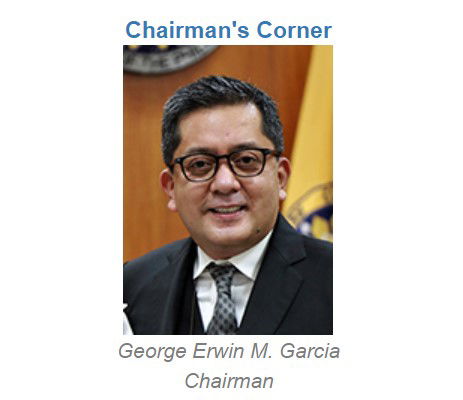
Chairman Garcia added, that:
"Candidates cannot go around, campaign, distribute things since they are already candidates, and it is unlawful to engage in an election campaign or partisan political activity except during the campaign period."
A reminder and a stern warning was also made to all the candidates that they will be disqualified and will be facing election offenses cases should they violate the provision of the election law.
The campaign period for the October 30, 2023 BSKE polls is from Oct. 19 to 28, 2023.
For more information, you may reach the COMELEC thru its website: https://comelec.gov.ph/
Photo Courtesy: COMELEC Website
After several years of dispute on the issue on whether interment services are covered by 20% discount on funeral and burial expenses provided by the Senior Citizens Act and its amending laws, the Supreme Court has just recently ruled that it is.

This announcement was made by the Supreme Court Public Information Office on March 16, 2023. In an En Banc decision, the Supreme Court, though Associate Justice Rodil V. Zalameda granted the petition for review on certiorari filed by the Republic of the Philippines and set aside the January 18, 2018 and October 22, 2018 Resolutions of Branch 17 of the Cagayan de Oro City Regional Trial Court (RTC), which excluded interment services from the coverage of the statutorily mandated senior citizen discount on “funeral and burial services.”
In favoring the prayer of the Office of the Senior Citizens Affairs as one of the Petitioners, the Supreme Court made its ratiocinations, that:
“The Implementing Rules and Regulations (IRR) of RA 9994, or the Expanded Senior Citizens Act of 2010, only mentioned the services of purchase of casket or urn, embalming, hospital morgue, and transport of the body to the intended burial site, the RTC held that the service of interment was not included as one of the benefits covered by the discount. Specifically, the RTC concluded that the digging of land for the grave of the deceased, the concreting of the gravesite, and the other services done during the actual burial were not subject to the 20% Senior Citizens Act discount. Also, that interment services are covered by the provision of RA 7432, as amended by RA 9257 and RA 9994, which grants a 20% discount on the funeral and burial services for the death of senior citizens, emphasized that the Senior Citizens Act is a law created to grant a bundle of benefits in favor of senior citizens or those at least 60 years old, giving flesh to the declared policy of motivating senior citizens to contribute to nation building and encouraging their families and communities to reaffirm the Filipino tradition of caring for the senior citizens.”
The Court rhetorically added also, that,
“Death may be the end of one’s life. But from the perspective of those left behind, there are things that survive a person’s demise. For the romantics, it is the memories and feelings that linger long after the passing of a loved one. For the pragmatics and businesspersons alike, the financial aspects of funeral and burial are matters that persist even after one is laid to rest.
The full text of the Decision in the subject case of Republic v. Pryce (G.R. No. 243133) will be published in the SC website once an official copy will be made available to the public.
“Ang kalayaan sa kontrata ay hindi ganap. Ang Artikulo 1306 ng Kodigo Sibil ay nagtatadhana na "maaaring magtatag ng mga itinatakda, mga sugnay, mga tuntunin at kundisyon ang mga magkakontratang partido na kanilang inaakala na maginhawa, basta't hindi sila labag sa batas, moralidad, mabuting kaugalian, kaayusan ng publiko, o patakarang pampubliko."
Gaya ng itinuturo ng batas nang mga kaso, na ang pagpapataw ng walang konsensyang rate ng interes sa utang ng pera, kahit na alam at boluntaryong ipinapalagay, ay imoral at hindi makatarungan. Ito ay katumbas ng isang kasuklam-suklam na panloloko at isang masamang pag-aalis ng ari-arian, na kasuklam-suklam sa sentido komun ng tao. Wala itong suporta sa batas, sa mga prinsipyo ng katarungan, o sa budhi ng tao at walang anumang dahilan na maaaring magbigay-katwiran sa gayong pagpapataw bilang matuwid at bilang isa na maaaring mapanatili sa loob ng saklaw ng pampubliko o pribadong moral.
Ang pagbubuod ng mga maraming desisyon nang Korte Suprema ay patungo sa direksyong ito ay ang kasong may titulo na Castro v. Tan kung saan sinabi ng Korte na:
Bagama't sumasang-ayon kami sa mga petisyoner na ang mga partido sa isang kasunduan sa pautang ay may malawak na paraan upang itakda ang anumang rate ng interes ayun sa Central Bank Circular No. 905 s. 1982 na sinuspinde ang kapangyarihan ng Usury Law sa interes na na nagging epektibo noong Enero 1, 1983, nararapat ding bigyang-diin na ang mga rate ng interes sa tuwing walang konsensya ay maaari pa ring ideklarang ilegal. Tiyak na wala sa nasabing circular na nagbibigay sa mga nagpapahiram ng walang limitasyung awtoridad na itaas ang mga rate ng interes sa mga antas na maaaring magpapaalipin sa kanilang mga nanghihiram o humantong sa pagdurugo ng kanilang mga ari-arian.
Are the heirs obligated to pay the debt of the deceased principal?
Obligado ba ang mga tagapagmana na bayaran ang utang ng prinsipal na namatay?
According to Article 774 of the Civil Code of the Philippines, “Succession is a mode of acquisition by virtue of which the property, rights, and obligations to the extent of the value of the inheritance, of a person are transmitted through his death to another or others either by his will or by operation of law.”
Consequently, Article 776 of the same law states that, “the inheritance includes all the property rights and obligations of a person which are not extinguished by his death.”
Ayon sa Articulo 774 ng Civil Code of the Philippines,
"Ang paghalili ay isang paraan ng pagkuha sa pamamagitan ng kabutihan kung saan ang ari-arian, mga karapatan, at mga obligasyon sa lawak ng halaga ng mana, ng isang tao ay naililipat sa pamamagitan ng kanyang kamatayan sa iba o sa iba alinman sa pamamagitan ng kanyang kalooban o sa pamamagitan ng pagpapairal ng batas. ”
Dahil dito, ang Artikulo 776 ng parehong batas ay nagsasaad na, "Kabilang sa mana ang lahat ng mga karapatan at obligasyon sa ari-arian ng isang tao na hindi naaalis sa kanyang kamatayan."
Unfortunately, it will remain until the asset of the estate of the deceased pays for it. Due to succession rules, both assets and liabilities will be passed on accordingly.
Sa kasamaang palad, mananatili ito hanggang sa mabayaran ito ng asset ng ari-arian ng namatay. Dahil sa mga panuntunan sa paghalili, parehong mga asset at pananagutan ay ipapasa nang naaayon.
To be clear, it is the asset of the estate that will still be liable to its obligation, and not the heirs themselves. Unless, they inherited from the estate of the deceased.
If they did not inherit, they will not be liable to pay the debt of the deceased principal.
Upang maging malinaw, ang asset ng ari-arian ang mananagot pa rin sa obligasyon nito, at hindi ang mga tagapagmana mismo. Maliban kung, nagmana sila sa ari-arian ng namatay.
Kung hindi sila nagmana, hindi sila mananagot sa obligasyon nang namatay na prinsipal.
The accreditation of LBC as an accredited courier was carried out by OCA CIRCULAR NO. 54-2023, issued by the Office of the Court Administrator of the Supreme Court (SC).
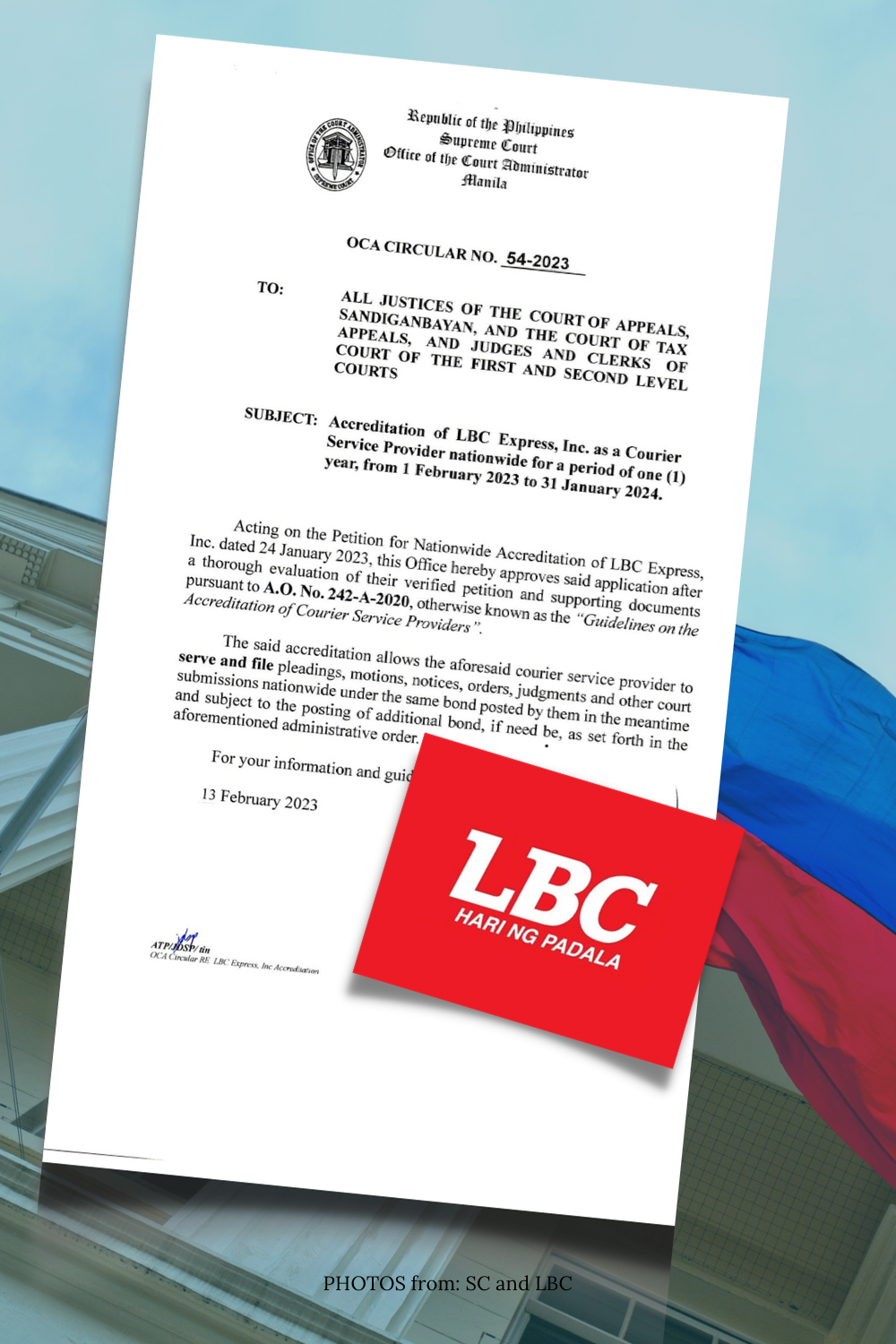
According to the said circular, the accreditation will allow the courier service provider to serve and file pleadings, motions, notices, orders, judgments and other submissions nationwide.
This is an alternative to Philpost, the national courier.
As observed by many, ordinary mailing from national courier is significantly slower than private couriers.
This a good development for legal practitioners.
The circular was issued on February 13, 2023 by the SC Court Administrator, RAUL B. VILLANUEVA.
On March 1, 2022, the Supreme Court En Banc deliberation approved the procedural rules expediting criminal and civil actions filed before the first level courts which amended the 1991 Revised Rule on Summary Procedure and 2016 Revised Rules on Small Claims Cases.
This is now entitled the Rules on Expedited Procedures in First Level Courts (A.M. No. 08-8-7-SC) to take effect after its publication in two newspapers of general circulation. This is consonance to the enactment of Republic Act (RA) No. 11576, which expanded the jurisdictional amount cognizable by the first level courts to ₱2,000,000.00 for civil actions monetary claims, and for the purpose of expediting the procedure in the first level Courts.
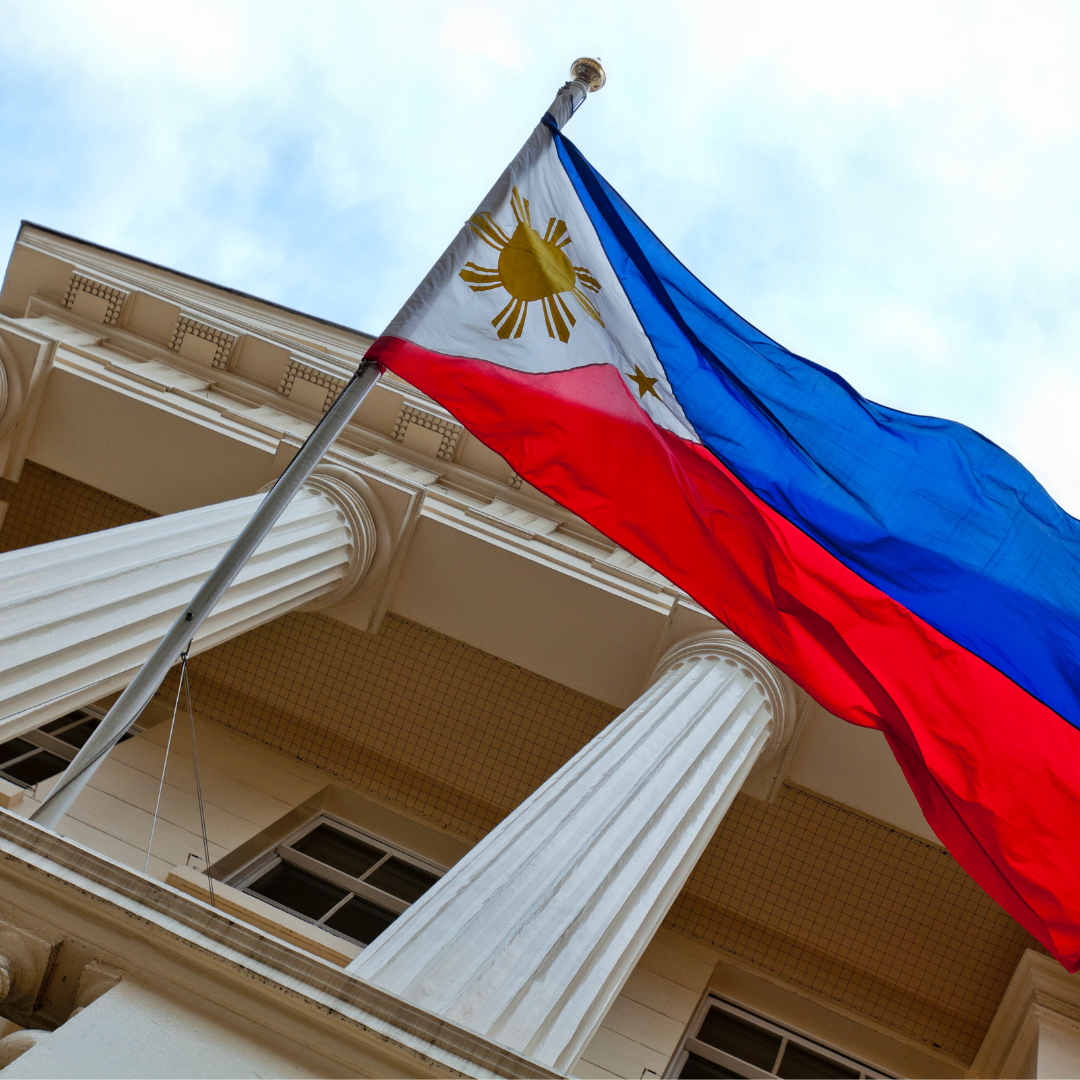
The Supreme Courts, in its publication on March 2, 2022, stated that, to quote:
“The provisions on prohibited pleadings and motions and service pursuant to international conventions under the 2019 Amendments to the 1997 Rules of Civil Procedure have also been incorporated, and videoconferencing hearings have been authorized at any stage of the proceedings. The salient features of the Rules include: Rule on Summary Procedure Civil cases covered by the rule on summary procedure now consist of: 1) forcible entry and unlawful detainer cases; 2) civil actions and complaints for damages where the claims do not exceed ₱2,000,000.00; 3) cases for enforcement of barangay amicable settlement agreements and arbitration award where the money claim exceeds ₱1,000,000.00; 4) cases solely for the revival of judgment of any first level court; and 5) the civil aspect of violations of Batas Pambansa Blg. 22 (BP 22), if no criminal action has been instituted. Provisions on the evidentiary nature of pleadings, filing and service, and pre-trial from the 2019 Amendments have likewise been adopted, unless inconsistent. With respect to criminal cases, violation of BP 22 is explicitly included, and the penalty threshold of all other criminal cases is increased to imprisonment not exceeding one year, or a fine not exceeding ₱50,000.00, or both, and a fine not exceeding ₱150,000.00 for offenses involving damage to property through criminal negligence. Arraignment and pre-trial shall be scheduled and conducted in accordance with the Revised Guidelines for Continuous Trial of Criminal Cases. The procedure of appeal has also been simplified. Any judgment, final order, or final resolution may be appealed to the appropriate Regional Trial Court (RTC) exercising jurisdiction over the territory under Rule 40 for civil cases and Rules 122 for criminal cases, of the Rules of Court. The judgment of the RTC on the appeal shall be final, executory, and unappealable. Rule on Small Claims The Rules increases the threshold amount of small claims cases to ₱1,000,000.00 and no longer makes a distinction whether the claim is filed before the first level courts within or outside Metro Manila. The claim or demand may be for money owed under contracts of lease, loan and other credit accommodations, services, and sale of personal property. The recovery of personal property is excluded, unless made subject of a compromise agreement between the parties. Nevertheless, the enforcement of barangay amicable settlement agreements and arbitration awards where the money claim does not exceed ₱1,000,000.00 is likewise covered. The Rules allows the service of summons by the plaintiff if returned unserved by the sheriff or proper court officer, or if it shall be served outside the judicial region of the court where the case is pending. If the case is dismissed without prejudice for failure to serve summons, the case may be re-filed within one year from notice of dismissal, subject to the payment of a reduced filing fee of ₱2,000.00. Notices may now be served through mobile phone calls, SMS, or instant messaging software applications. While videoconferencing hearings should be conducted using the Supreme Court-prescribed platform, the court may allow the use of alternative platforms or instant messaging applications with video call features, under certain conditions. The 30-day period within which to set the hearing was extended to 60 days if one of the defendants resides or is holding business outside the judicial region of the court. There shall only be one hearing day, with judgment rendered within 24 hours from its termination. The Small Claims Forms have also been updated and improved for ease of use, with translations in Filipino. The Rules maintained that the decision rendered by the first level courts in small claims shall be final, executory and unappealable. The Rules shall have a prospective application. Cases covered by these Rules which are currently pending with the first level and second level courts shall remain with and be decided by those same courts, in accordance with the applicable rules at the time of their filing. The SC Public Information Office will immediately upload a copy of the Rules in the Supreme Court website upon official receipt of the same from the Office of the Clerk of Court En Banc. “,
This Administrative Matter has been adapted to expedite the procedure in the first level Courts, including the Small Claims Courts, with the end view to decongest the cases of those Courts.
We have prepare a video topic discussing this new update that you can watch below.
This is a generic blog article you can use for adding blog content / subjects on your website. You can edit all of this text and replace it with anything you have to say on your blog.
The writers are both lawyers and had been in public service as public prosecutor and legal officer.
Most people who know them consider the two as street and people's lawyers, who, after their respective stints in the government service, they continue to serve the public in their capacities as human rights advocates.
As father and son tandem, they continue to give free legal assistance through their social media programs and radio broadcast programs, "LEGALLY YOURS PH", KASIYPOL", EXPERTO LEGAL with DYHB-RMN, and "LEGALLY YOURS, KABANDERA" with RADYO BANDERA.
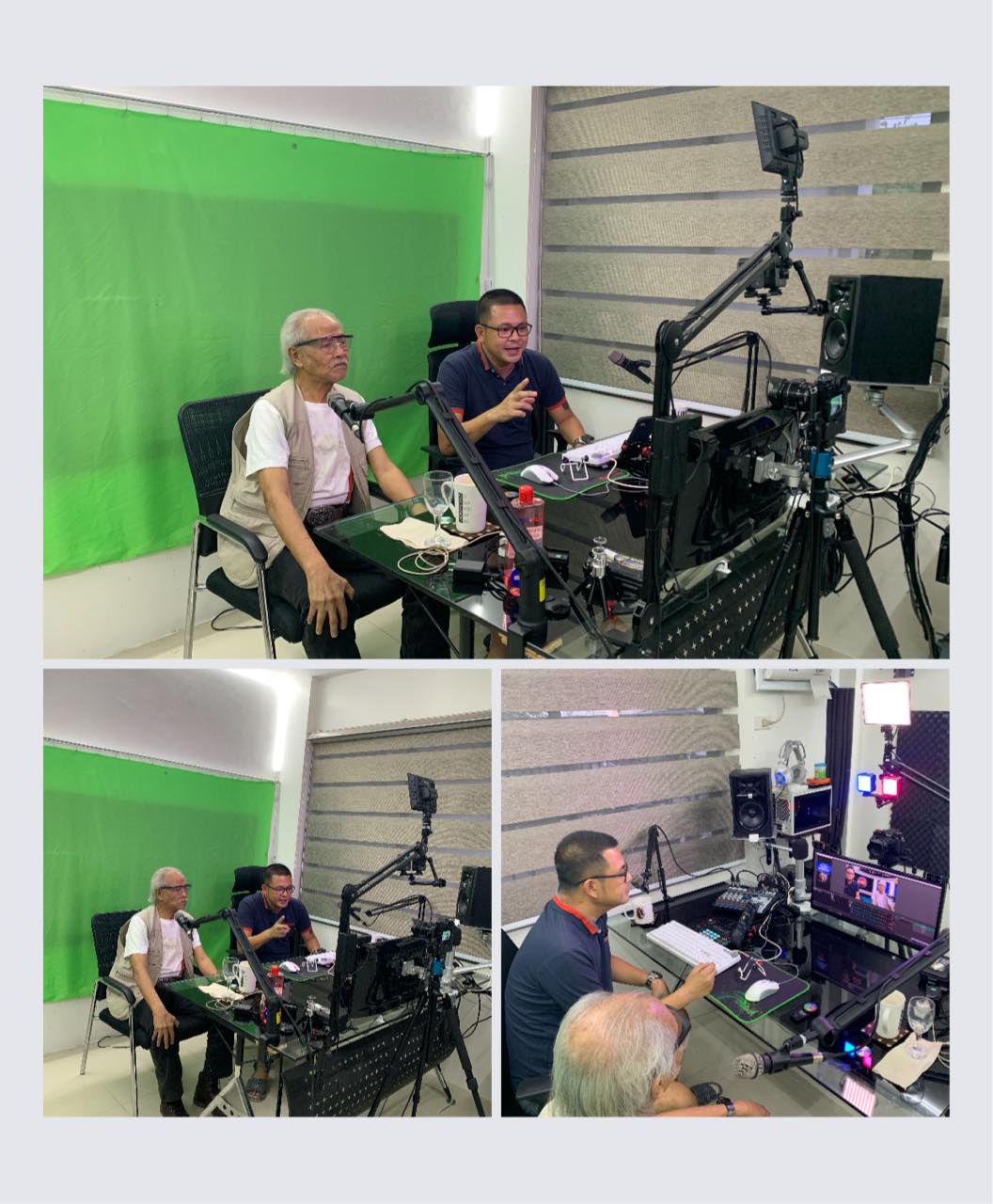
They are also known by many as "Kape Pakners" being lovers of coffee and as frequent visitors of several coffee shops in the City. Both also are culinary experts in their rights, for their love food and several styles of cooking.
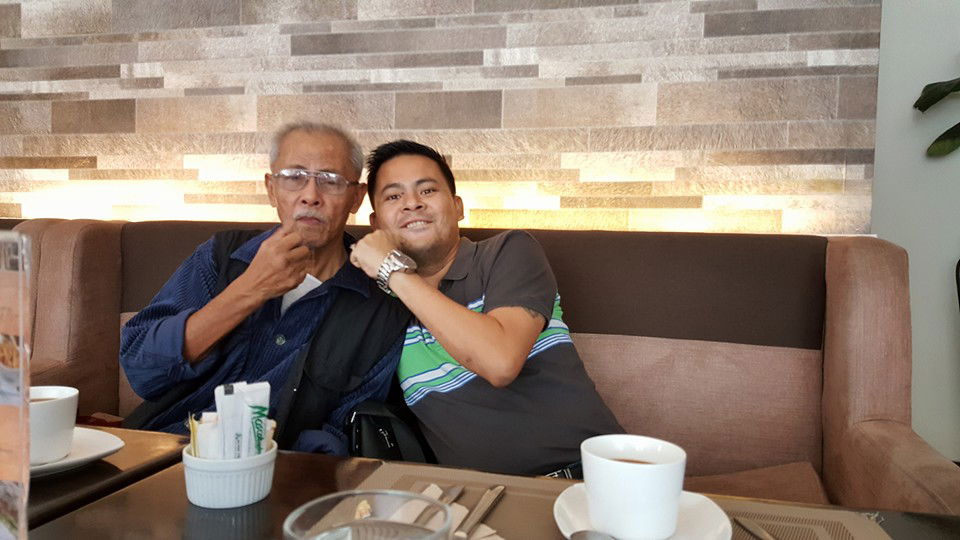
As classic example of being street lawyers, you can always find their availability to provide free consultations and legal advises in the streets and other public places.. They are available anytime, anywhere.
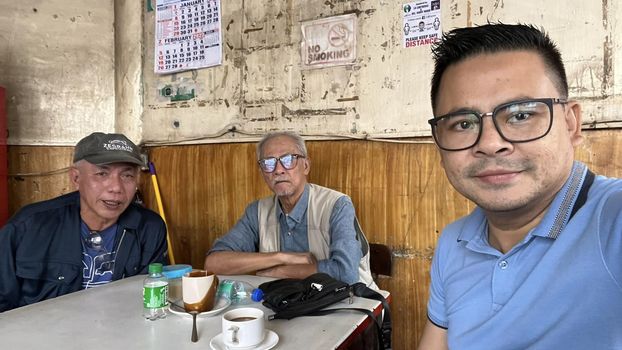
They are both resident of Bacolod City, Philippines but was born in Iloilo, Philippines as their origins can be traced.
The father and son tandem are happily married to very loving and supportive wives, and being loved by both family and friends, they are inspired in serving the People for the rest of their lives.
Please follow their blogs for more stories and articles.
This is a generic blog article you can use for adding blog content / subjects on your website. You can edit all of this text and replace it with anything you have to say on your blog.
A People's Lawyer is a term typically used to refer to attorneys who are responsible for representing the interests of their clients in court, as well as providing advice and guidance on legal matters. As the People's Lawyer, as compared to other legal practitioners, they are tasked with protecting the rights of citizens and upholding the rule of law. Additionally, they often provide legal services to those who would otherwise be unable to afford them, such as low-income individuals, through pro bono programs.
Among others, one known and active organization of lawyers in the Philippines which is dedicated in serving the interest of the people's rights against government abuses is the National Union of People's Lawyers (NUPL).
The National Union of People's Lawyers (NUPL) is a network of lawyers and organizations in the Philippines working to promote , protect, and defend human rights and the rule of law. The NUPL was founded in 2007 and has since become an important part of the human rights movement in the Philippines. The NUPL advocates for the defense of victims of human rights violations and works to promote social justice and the rule of law. Its members provide legal assistance to victims of human rights violations and work to ensure that the legal system is accessible and just for all.
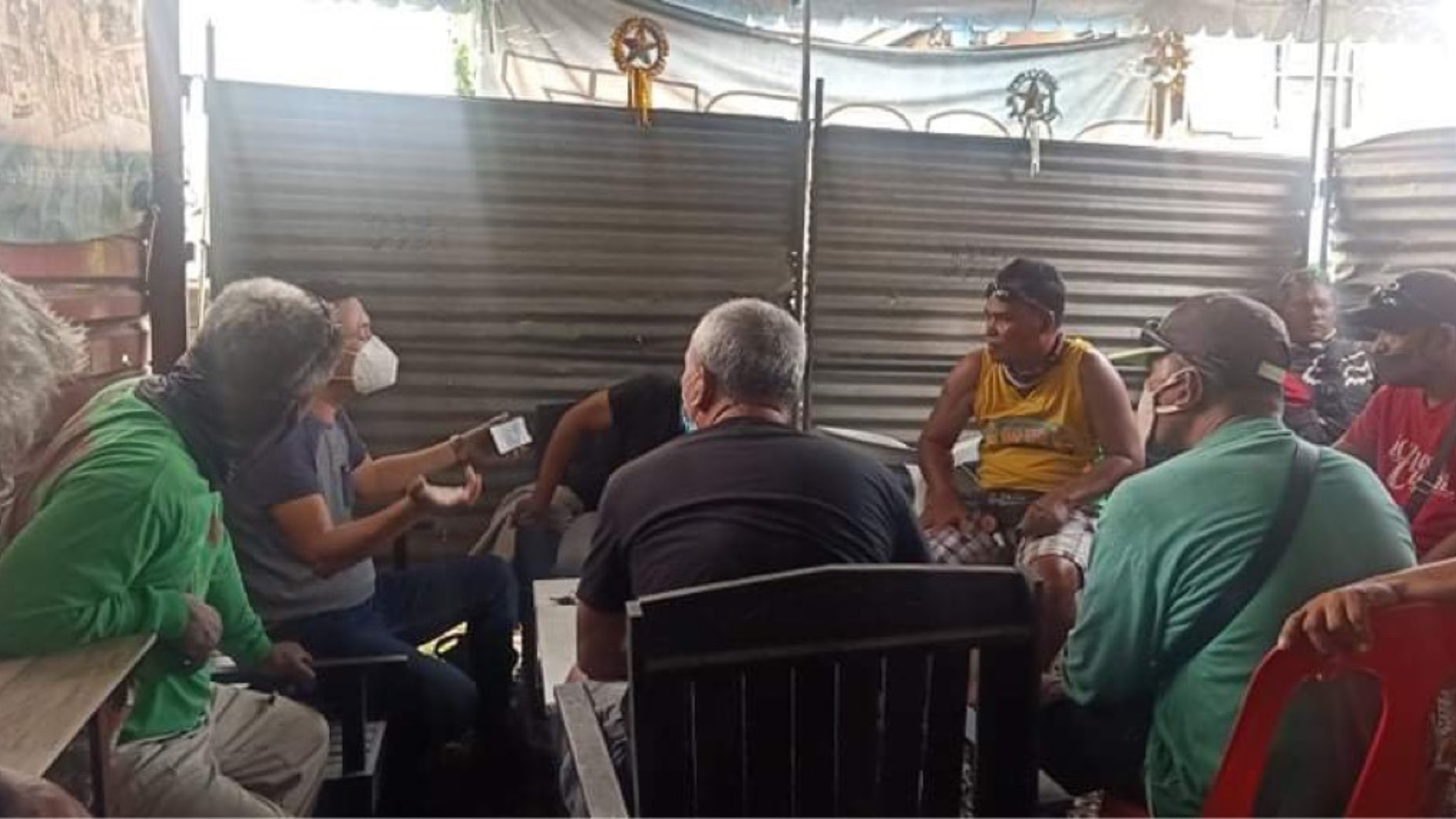
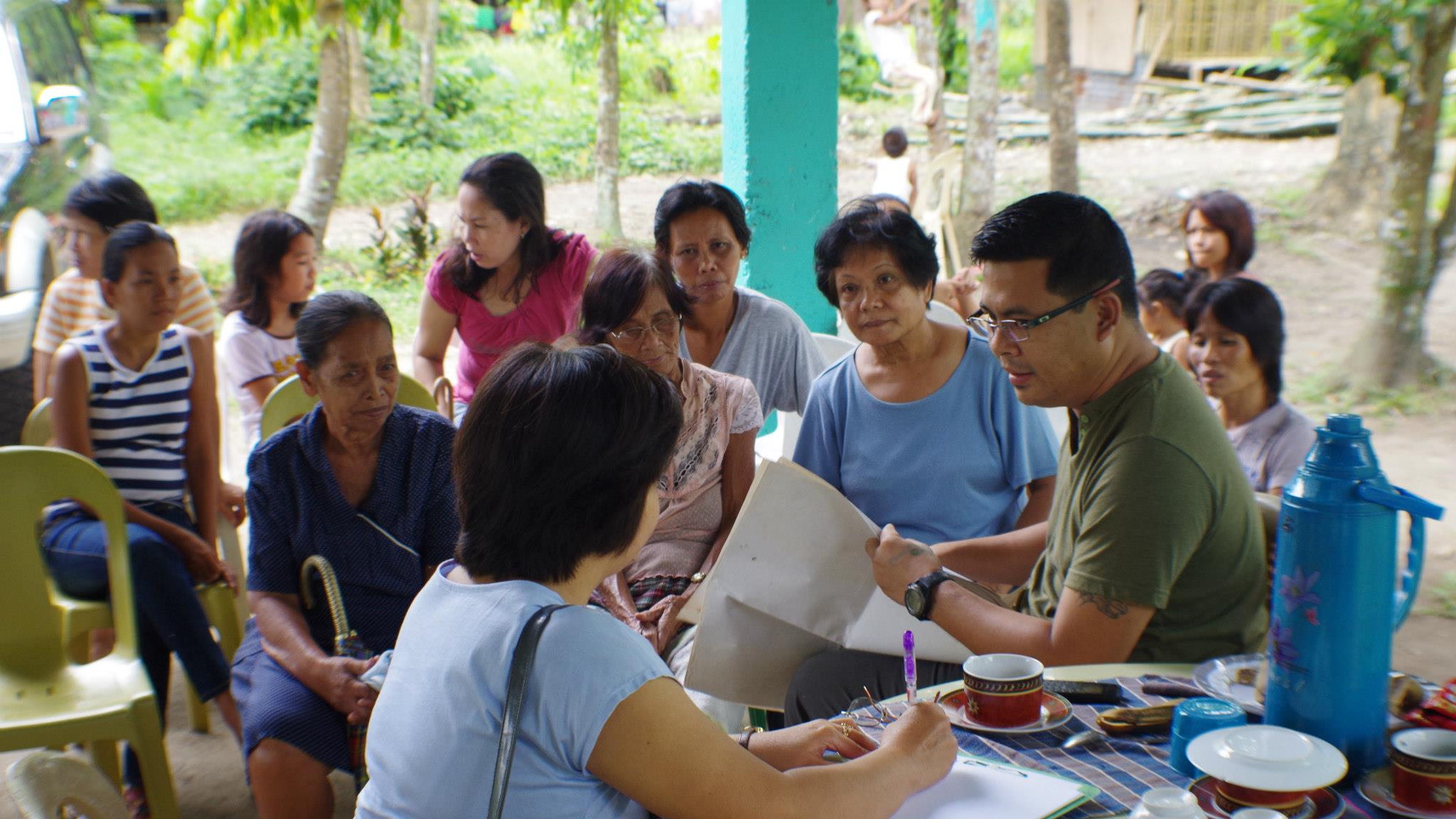
There are also free legal assistance organizations and non-government organizations (NGOs) which provide free legal assistance in various areas of legal practice and advocacies like consumer rights, other than human rights cases.
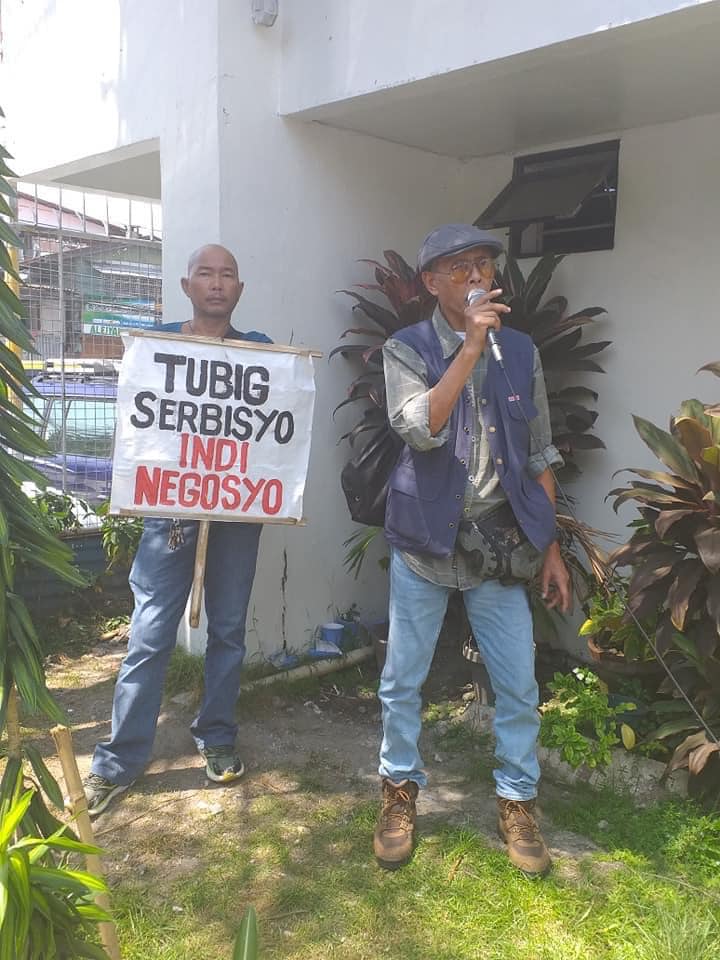
People's lawyering and pro-bono legal services are, for sure, not income generating for professionals like lawyers, but to most advocates, the same are equally satisfying and gratifying.
Please continue to follow for more stories and articles.
